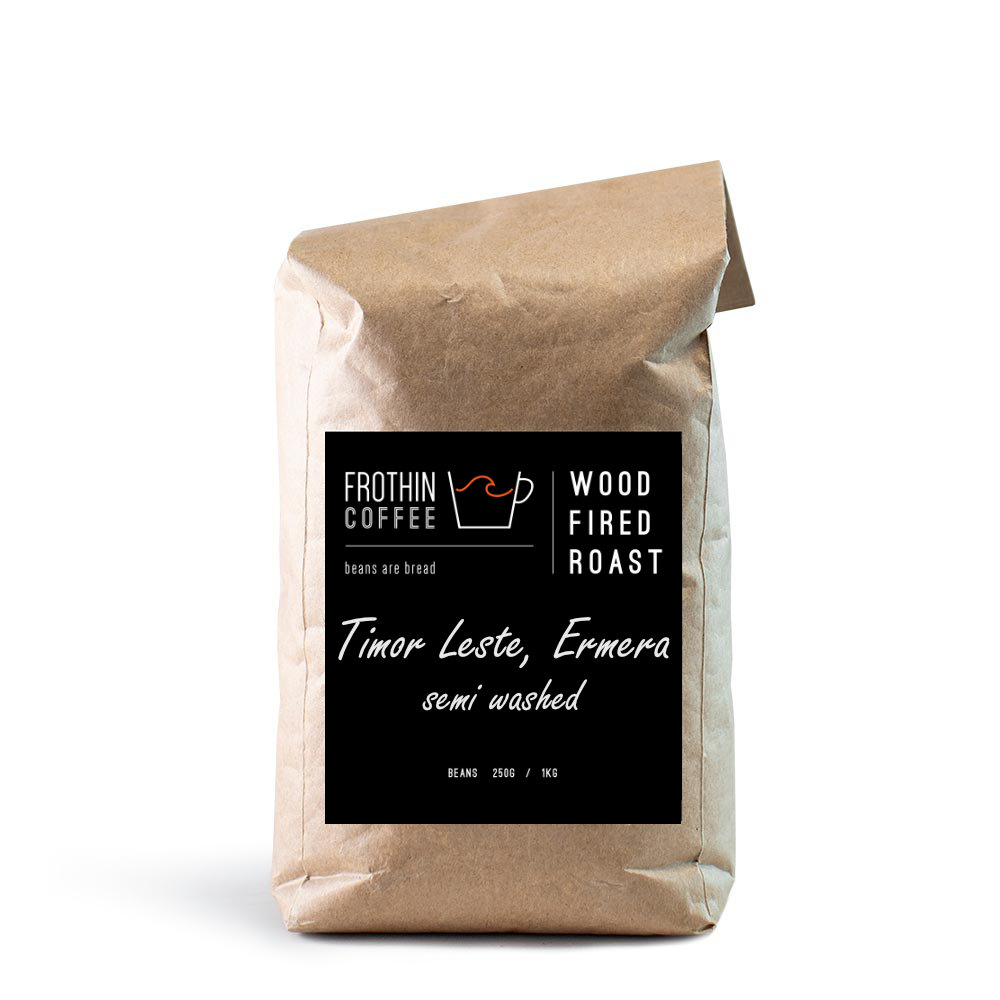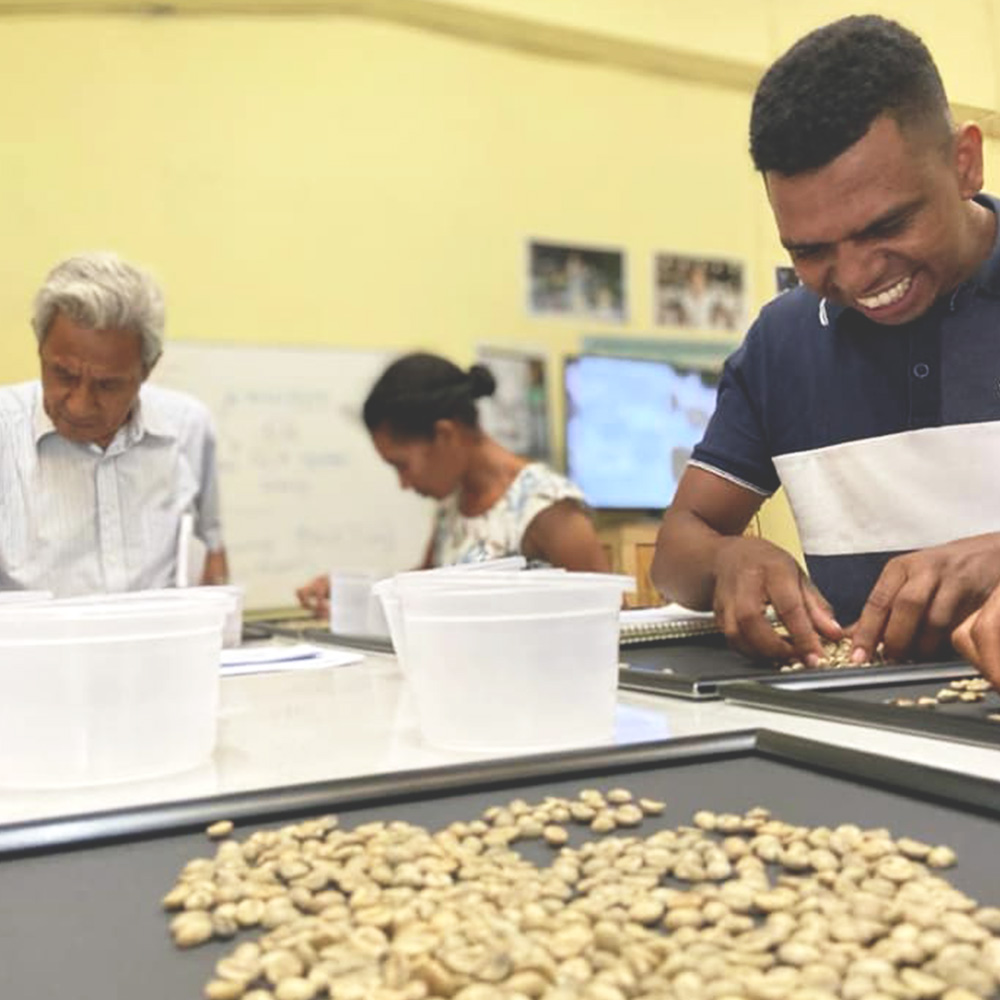TIMOR LESTE Coffee – ERMERA (semi washed)
$14.50 – $45.00
Full body. Spice. Mandarin Orange. Cocoa. Hazelnut
In the 1920s on the island of Timor, a fortuitous crossing of an Arabica and a Robusta plant was discovered in the forest gardens of Ermera district in the eastern highlands. Observations showed this new variety had the hardiness and high yields of its Robusta parentage, whilst exhibiting refined cup qualities owing to its Arabica make-up. Decades of study and development saw the ‘Hybrid of Timor’ go on to be cross-bred with Caturra to create Catimor varieties by 1967 – just in time to be introduced across the Americas and save those powerhouse coffee lands from being decimated by Coffee Leaf Rust (which straight Caturra is highly vulnerable to).
Meanwhile, for the promising coffee island, the Portuguese colonisation of the East was replaced in 1976 by Indonesian annexation with the West. Civil unrest became perpetual, a century-old coffee industry shrivelled up and infrastructures collapsed making exports untenable. Independence was recognised in 2002, making Timor Leste the first new state of the 21st century. The coffee sector made a sharp turnaround thanks largely to foreign investment responding to the country’s obviously great natural potential. Today, coffee is the country’s only cash crop, grown by about a third of all households and accounting for over 80% of total exports.
Unable to compete on the world stage for quantity, all efforts are poured into increasing quality potential by way of training programs, improved infrastructure and land rehabilitation, realising far higher income to farmers. Most recently, innovative processing techniques are being well executed and turning specialty heads. With inspiring younger generations engaging proudly with their unique history and caring coffee culture, momentum towards exciting new profiles are sure to be realised in the near future.
This Ermera lot is a selection of Typica and Timor varieties, handpicked by some 160 women and men. Like all Timor- Leste coffees, it is shade-grown and farmed organically, by tradition. Soon after picking on the same day, individual smallholders pulp cherries to remove the skin and much of the mucilage layer before being spread on raised drying tables or patios. Once moisture is reduced to ideal levels, parchment is delivered to Railaco Station for milling, density, colour and sorting prior to export.
99 Pinjarra Rd, Mandurah | Mon to Fri 6:00am to 1:30pm, Sat 7:00am to 1:30pm.
Call 0451-022-279 | Email [email protected]
Join Us For Brew
99 Pinjarra Rd, Mandurah
Mon to Fri 6:00am to 1:30pm,
Sat 7:00am to 1:30pm.
Call 0451-022-279 | Email [email protected]

